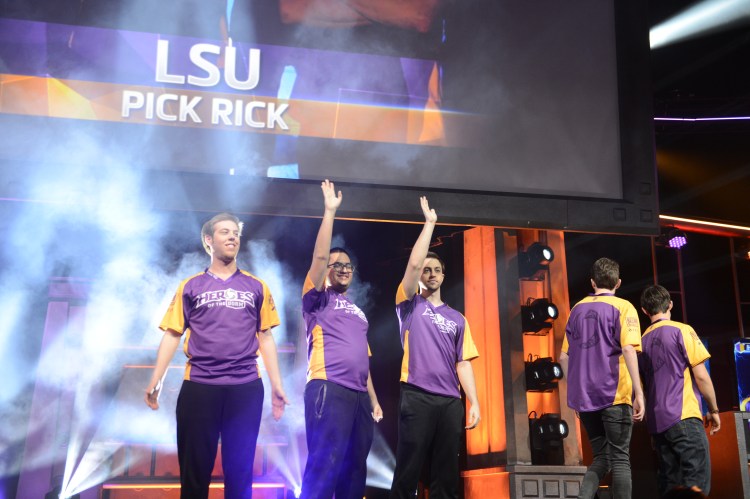As esports at all levels continues to earn mainstream credibility, one segment is poised for explosive growth – collegiate esports. How colleges and universities will manage esports is an important question.
Esports has the potential to be a significant revenue generator at the collegiate level, it on par with money-making college sports like football and basketball. The current path of collegiate esports, however, puts it in the Wild West — no regulation, rules, or plan.
So how does collegiate esports take the next important step in its growth? The answer involves replicating the current systems governing traditional college sports. This would include the NCAA stepping in to provide oversight and guidance while distributing financial benefits among member schools and esports participants.
In the current vacuum, esports is developing organically with game developers and publishers and broadcast mediums attempting to create their own leagues, tournaments, and events, such as Blizzard’s Heroes of the Dorm. Some schools have formed together to create the National Association of Collegiate Esports (NACE) are trying to fill the void left by the lack of NCAA oversight.
June 5th: The AI Audit in NYC
Join us next week in NYC to engage with top executive leaders, delving into strategies for auditing AI models to ensure fairness, optimal performance, and ethical compliance across diverse organizations. Secure your attendance for this exclusive invite-only event.
Ultimately, colleges and the NCAA need to act quickly if they want to own the collegiate esports world. Otherwise outside entities, such as game publishers and broadcasters, will reap the financial benefits of collegiate esports.
In the current vacuum, esports on campus will be a random, sometimes conflicting collection of scholarship, financial aid, and rules issues. Private organizations organizing tournaments like Heroes of the Dorm or Riot’s University League of Legends will benefit financially more than colleges themselves. The resulting chaos and confusion will ultimately stunt the growth of college esports.
The essence of collegiate esports is that it embraces college athletics; otherwise, it’s just another gaming competition. If the competitive dynamic that fans enjoy is school vs. school, the colleges should benefit. These institutions have spent generations building their brands and all the benefits that come along with that recognition. Allowing collegiate esports teams to piggyback on those brands without financial benefit for the schools would be a mistake.
Allowing the NCAA to manage collegiate esports is a potential windfall for the NCAA and its schools. It also would help protect players and teams as well.The NCAA would manage important aspects such as scholarships, health and safety issues and set rules and guidelines to ensure fair competition.
Another often overlooked, but not insignificant, piece of this equation is the merchandise that collegiate esports teams are sure to sell to fans. If the athletic department of one university and the non-NCAA sanctioned esports team from that same university are both selling merchandise but from different companies (like a Nike school with an Adidas-sponsored DOTA 2 team), it may create disputes. Legal collisions will inevitably arise as esports teams inadvertently tread on the intellectual property rights of colleges and their official licensees.
While it may not seem like it at times, the NCAA demands parity in all their sports by outlining guidelines for each sport that each member school must follow. No other governing body can walk into the collegiate esports realm and immediately put these regulations into place like the NCAA can, thanks to their already existing relationships with universities in the United States.
One thing that certainly would have to change if the NCAA were to take over is that professional esports players cannot also be collegiate esports players since NCAA sanctioned sports restrict players from earning money while competing.
The NCAA has faced some criticism in other sports like football and basketball, where players help draw large sums of money without the financial benefits. The same issues could arise should the NCAA govern esports but the benefits players receive as a result of NCAA involvement outweigh individual player compensation concerns. Players competing in NCAA sanctioned esports could benefit from a fully or partially paid college education, while also benefiting from the infrastructure colleges provide, including arenas, marketing and promotions.
Big East commissioner Val Ackerman recently said she thinks the NCAA is taking a wait-and-see approach on the development of esports, which is a mistake. So, ultimately, who will bring order and reap the benefits of collegiate esports? Time will tell, but if the NCAA doesn’t step in, it will realize quickly it missed a significant opportunity.
Ken Ungar is the founder and president of sports marketing agency CHARGE, which recently launched CHARGE esports.


